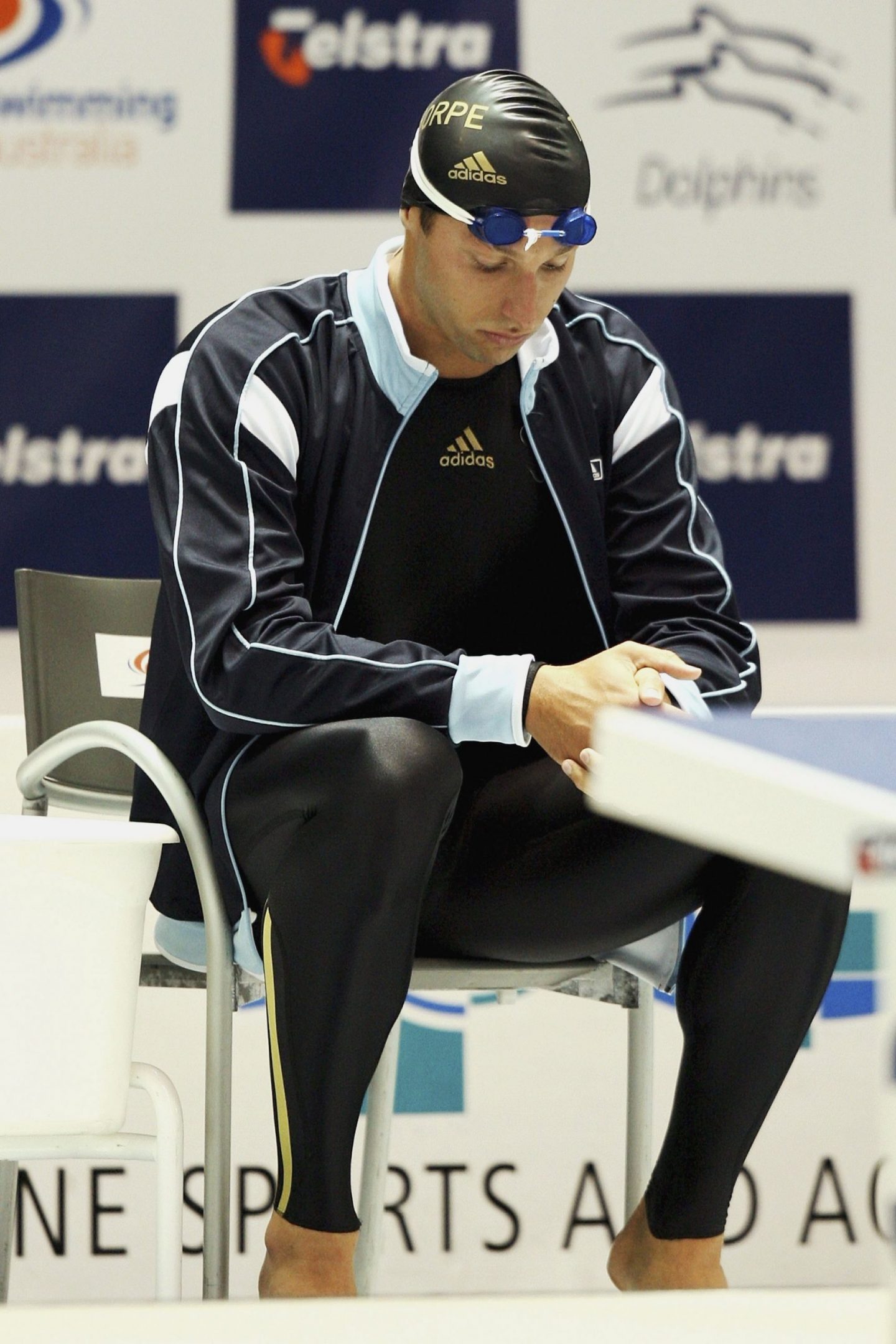
Ian Thorpe Reveals the Lessons he has Learned Living With Depression
Olympic legend Ian Thorpe has learned how to thrive whilst living with depression. He shares with us what he has learned on his journey to better mental health.

When a 17-year-old Ian Thorpe won his first gold medal in front of a home crowd at the Sydney Olympics in 2000 he was immediately catapulted to sporting fame. The Australians who cheered his every stroke saw an athlete at the top of his game, but underneath that façade, Ian was facing the daily struggle of living with depression.
“As a teenager, I was struggling with my own mental health and the feeling that I was not able to fit into this world. Even in the lead-up to some of my greatest accomplishments in the pool, I was struggling as an individual to be able to just succeed at normal life.”
 Ian Thorpe started competing for Australia aged 14 and went on to win five Olympic Gold medals. ©Adam Pretty / Getty images
Ian Thorpe started competing for Australia aged 14 and went on to win five Olympic Gold medals. ©Adam Pretty / Getty images
At that time, the only coping mechanism he had was swimming. “Doing countless laps in the pool may seem mundane to everyone else, but for me it was like making music. I loved it. It was a release for me.”
"What my swimming coaches saw as me trying to improve my efficiency, was actually me improving my own mental health."
Since being medically diagnosed with depression, Ian has found ways to cope with the illness and now openly talks about it in order to remove the stigma and raise awareness of mental health conditions. In a recent open interview with adidas employees, he shared some powerful insights about his experience of living with depression from a young age, and the lessons he has learned that have help him live a full and enriching life.
1.Accept your vulnerability. It’s OK, not to be OK.
“As an athlete who was driven to be the best at everything, I struggled with the idea of not being able to cope mentally with normal life. I wrestled with this for a considerable amount of time, both during my sporting career, and then also post-career as well.”
“Then, I had the realization that the most important part of living with depression was accepting my own vulnerability; accepting that everything that I did wasn’t perfect. Even the way that I approach my life now, I’m sure it’s not perfect. But, by having a greater understanding about myself and being able to implement strategies to cope, I actually have a better life.”
 After he retired from competitive swimming Ian revealed that during his time as an athlete, he was also battling depression. ©Kristian Dowling / Getty images
After he retired from competitive swimming Ian revealed that during his time as an athlete, he was also battling depression. ©Kristian Dowling / Getty images
2.Acknowledge the issue
“It’s important to acknowledge that depression is something that you’re dealing with and that it’s going to have an impact on your life. This may seem overwhelming to begin with, but over time, this impact reduces.”
“When I was first diagnosed, it was after months, possibly years, of living with the condition. I didn’t believe the doctor when they told me it is treatable. I couldn’t see any way out of it, all I could feel was that I was struggling. Only when I started to get better and had some clarity in my mind did I realize how long I had been ill, and how I had just resigned myself to that feeling. When I finally got some clarity, I realized I was actually happy.”
"From that point forward, I decided to be someone that has depression, but who chooses not to have a depressed state of mind. In doing so, it empowered me. It meant that I took a level of control over what I was going through."
3.Give yourself a day off
“I’ve learned that it’s important to accept that on some days, it’s just not my best day… and allow myself to have a day off. I set the parameters in place that it’s only for one day, and then the following day I’m going to get up and I’m going to be able to do all the things that I’ve done before. To dismiss it would just be to add to the burden that is already there.”
4.Establish a support network
“I try and rationalize my symptoms the best I can. Most days it works, but occasionally it fails. When it does fail, I make sure I reached out to the right people… the people that I’m close to that I know that can make a difference.”
“This support network has changed over time, and it took me some time to establish it. When I was younger, it could have been my family, but at the time I didn’t want to distress them. I felt as though I would overburden them with my struggles. Of course, when I rationalize this as an adult, I know that my parents and family would have done anything for me.”
"This is the crux of the issue with mental health problems. Those that are struggling are often not thinking rationally, and they don't realize there is a lot of support available."
“Thankfully, I was able to speak to some friends, some colleagues, some people that I worked with, and realize that this isn’t just something that has come out of the blue, it’s something that may be ongoing. Then, I had to set up a strategy to be able to deal with it.”
Ian is the patron and a board member of ReachOut, Australia’s most accessed online mental health service for young people. If you, or someone you know, is experiencing any of the issues Ian talked about then their website can offer more help and guidance.




